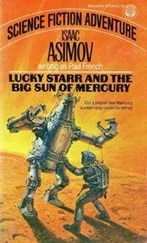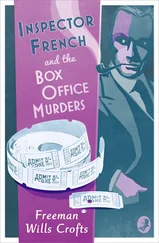Jerry Pinto - Em and the Big Hoom
Здесь есть возможность читать онлайн «Jerry Pinto - Em and the Big Hoom» весь текст электронной книги совершенно бесплатно (целиком полную версию без сокращений). В некоторых случаях можно слушать аудио, скачать через торрент в формате fb2 и присутствует краткое содержание. Год выпуска: 2014, Издательство: Penguin Books, Жанр: Современная проза, на английском языке. Описание произведения, (предисловие) а так же отзывы посетителей доступны на портале библиотеки ЛибКат.
- Название:Em and the Big Hoom
- Автор:
- Издательство:Penguin Books
- Жанр:
- Год:2014
- ISBN:нет данных
- Рейтинг книги:3 / 5. Голосов: 1
-
Избранное:Добавить в избранное
- Отзывы:
-
Ваша оценка:
- 60
- 1
- 2
- 3
- 4
- 5
Em and the Big Hoom: краткое содержание, описание и аннотация
Предлагаем к чтению аннотацию, описание, краткое содержание или предисловие (зависит от того, что написал сам автор книги «Em and the Big Hoom»). Если вы не нашли необходимую информацию о книге — напишите в комментариях, мы постараемся отыскать её.
Em and the Big Hoom — читать онлайн бесплатно полную книгу (весь текст) целиком
Ниже представлен текст книги, разбитый по страницам. Система сохранения места последней прочитанной страницы, позволяет с удобством читать онлайн бесплатно книгу «Em and the Big Hoom», без необходимости каждый раз заново искать на чём Вы остановились. Поставьте закладку, и сможете в любой момент перейти на страницу, на которой закончили чтение.
Интервал:
Закладка:
‘It’s only because I speak Portuguese,’ he had said when he told us he would be away.
I felt my heart sink. I was to be the man of the house?
‘Granny will come and stay here,’ he continued, and I began to bristle. What did we need Granny for?
Granny had agreed with me, but she came. She had nothing much to do for several days. Em and she sat around and chatted desultorily. Em sang hymns and made some ‘personal interpolations’ at which Granny clucked in perfunctory and half-hearted disapproval. Tea was consumed in large quantities and mealtimes were full of unexpected excitement since Granny cooked happily for four.
But on the day before the storm, Granny had been tempted to go off to the novena at St Michael’s church. She was going to say it nine times in a single day for her daughter’s health. When she came home the following morning, she began to wail and blame herself. We were all distraught. I thought I might cry so I started to shout again. Susan told me to shut up. Em said irritably, ‘Oh stop it. I’ll go to hospital.’
Then she went off to bed, exhausted.
We agreed, Susan and I, that this was a cry for help. Was it? Or was it us, hoping for some peace and quiet? At any rate, Em felt at home in Ward 33 of Sir J. J. Hospital. It was as much a government hospital ward as any. The schizophrenics and the anorexics and the depressives were locked in with the alcoholics and the drug addicts. None of this seemed to matter to Em. She always slipped into the ecosystem without much effort. Divorced from decision-making, she soon became the star patient. She would change from the raving ranting harridan who smoked and shrieked and threw things out of the house into Nursie’s Little Helper. She would feed the recalcitrant and collect the pills that they spat out. She would urge gentleness on the ward boys and chat in broken Hindi to everyone. Perhaps this was just strategy, a way to avoid ECT, but it worked. She went to Ward 33 willingly, even when she was depressed and wanted to die. Perhaps the rhythm of hospital life soothed her, suited her. Here, no decisions were to be made and no one expected you to be anything other than a survivor, lying on a somewhat grubby bed, waiting for the tide to rise again. It might even have been the home she kept asking for. ‘Put me in a home,’ she would moan. There was no answer to this because there were no homes for the mentally ill, not unless you wanted to take your chances with the mental hospitals and ECT.
However, this time the ward was full. There was not a mattress on the floor to be had although one more could always be squeezed in. All you had to do was claim that your patient was suicidal and the hospital would be obliged to take her in. But since Em was in full form — already trying to bum beedis off ward boys and greeting ward sisters as if they were old friends, patting old women on the head and telling them that everything would be all right if they had ‘bharwasa’ in God — it was not an easy sell. This was what made everything about her illness so difficult to understand. If she had had a paranoid attack last night, where was it now? If she had been worried about her family being buried in the trenches of road repairs, why was she hugging a shy Malayali nurse and telling her that she was not to worry about being short because she had ‘more inches to choose from’? Had she made some sort of pact? Had she worked it out in her head that if she went to hospital, we would all be safe? Or had the paranoia passed?
The answer was: any or all of the above.
What was not the answer was the one that always came to my overheated mind when something had happened that upset me: she was faking it. She was indulging herself. She was taking us all for a ride.
This was the lazy way. It was also a way of getting cheap relief. For a few moments, everything was located squarely within the range of ordinary human emotions and motives. Em was not mad. She was simply another malingerer. Like any other malingerer, she wanted to evade her ordinary responsibilities. Like any other malingerer, she wanted to be served hand and foot. We had all been taken for a ride. We were fools.
I don’t remember thinking this when she was depressed, for there was no way she could have been faking her depression.
But now, the terror and embarrassment of the night’s chaos still fresh in my mind, I told myself, Yes, she’s faking it, no way she’s not faking it. This spared me the phenomenal expense of empathy. Unfortunately, it was not very convincing and did not last long. I could not convince myself that Em really wanted to laze around. She was always willing to make tea, to clean up in a desultory fashion if you insisted on cleanliness, to type out a play script so that it could be photocopied. She would help out with anything you wanted. And what could be the advantage that accrued to her in faking an attack of paranoia? While she did think of Ward 33 as a kind of second home, it was still second best.
‘Full up?’ she asked Matron Galgalikar in mock outrage. ‘You’re telling me you’re full up? And me one of your best patients?’
‘Arre, we would take you like that…’ and here Matron Galgalikar snapped two plump fingers under Em’s nose, ‘… but where will I put you? On my hip?’
‘Nice hip,’ said Em and allowed herself to be led back to the car and taken to the Staywell Clinic in Khar. On the way there, the rage returned. She lashed out at the cab driver. She tried to pull off her clothes as payment. She began to sing raucously and then to beat herself. It was only when Susan burst into tears that she eased off a little.
The Staywell Clinic was run by Dr Alberto D’Souza, one of the city’s senior-most psychiatrists. Had Alfred Hitchcock been born Indian, he would have looked like Dr Alberto. He was short, he was round, he was bald, he was lugubrious, his jowls sagged and his face was puffy to the point that it seemed as if the fat were restricting his freedom of expression. And he wore three-piece suits in defiance of Mumbai’s subtropical weather. It was never a problem getting a bed at the Staywell Clinic. It had a high turnover because it was expensive.
A week later, she was returned to us as from the dry-cleaners’. We recognized her because she looked as she did in the intermediate stages — a crisp middle-aged Roman Catholic lady in a crisp, floral-printed cotton dress, leaning slightly on her husband’s arm, for The Big Hoom had returned to take charge.
But we knew that something was wrong. We smelt it in the aura she exuded. We felt it in the way her eyes met ours. There was nothing in her eyes, none of the collusive appeal to family that she normally made. Something in her brain told us we were friends so she treated us like friends, but there was nothing behind it. And then we discovered that love was about memory and something had disrupted her store of our collective memories.
‘Why have they tied up your hair?’ Susan asked and reached forward to pull the band off Em’s grey-black hair. Through the open window of the car, the hot breeze began to play with Em’s hair. Em shook her head, shaking out her hair, a familiar gesture from a changeling.
Susan froze.
I followed the direction of her gaze. On the side of Em’s forehead, a high forehead that remained unlined to the day she died, was a mark, a red angry mark, a burn mark, the place where the electricity had surged into her head.
We both looked out of our windows. Susan was crying, silently; I wanted to but couldn’t find a way. The Big Hoom began to talk to Em, in a quiet rumble, like distant thunder.
When we were home, Susan made tea and we drank it in our usual positions: Em and Susan sitting at the table, The Big Hoom leaning on the kitchen counter and me on the floor. I can still see the scene in my head because it was one of the few times we were drinking tea at an appropriate moment in the day. Em sat like any of a million perfectly correct Roman Catholic women, her knees pressed together, her elbows off the table, her head inclining courteously to the person speaking. She was a caricature of herself. She drank her tea in polite sips. She accepted a refill with a ‘Thank you’ that pinged off two ugly notes. When she had finished, she put down her cup and sat, looking at the wall.
Читать дальшеИнтервал:
Закладка:
Похожие книги на «Em and the Big Hoom»
Представляем Вашему вниманию похожие книги на «Em and the Big Hoom» списком для выбора. Мы отобрали схожую по названию и смыслу литературу в надежде предоставить читателям больше вариантов отыскать новые, интересные, ещё непрочитанные произведения.
Обсуждение, отзывы о книге «Em and the Big Hoom» и просто собственные мнения читателей. Оставьте ваши комментарии, напишите, что Вы думаете о произведении, его смысле или главных героях. Укажите что конкретно понравилось, а что нет, и почему Вы так считаете.











